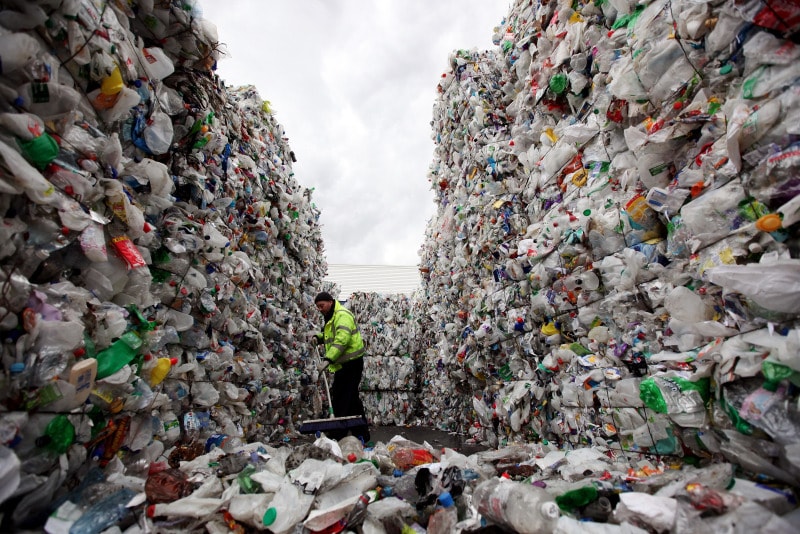Fuel made from plastic

Disposal of plastic from oil is contaminating not only the landfills but the oceans of the world as well, affecting whole ecosystems. A report published by the Ellen MacArthur Foundation said that by the year 2050, there will be more plastics in the oceans than fish. At this point, a plastic garbage truck is dumped into the ocean every minute. How to solve this problem?
Plastic production has increased twentyfold over the last 50 years and is expected to quadruple by 2050. Currently, plastic production uses 5% of the world's oil output, and will increase to 20% within 35 years. As humans continue to create more than 100 million tons of polyethylene per year, scientists and environmentalists are struggling to find a way to reverse the harmful environmental effects of plastic wipe. Researchers at the Institute of Organic Chemistry in Shanghai, China and the University of California, USA have developed an effective method to convert polyethylene (the most common plastic on Earth) into liquid fuel or wax. The current medium for the conversion of plastic into fuel uses ultraviolet radiation which, according to the researchers, suffers from low energy efficiency and lack of product control. According to the study, researchers have developed a much more efficient process known as cross-metathesis with alkane. This process is highly efficient in breaking down the plastic, according to researchers, and requires no pretreatment. This means that instead of throwing tons of plastic in the oceans or in holes in the ground, all the waste can be turned into fuel for your vehicle. The transformation of the plastic back into hydrocarbons to be used as
fuel is surely a step in the right direction for circular economy, and
should be used on a large scale as quickly as possible. But there are
other companies that have developed technology to turn plastics into
fuel and biogas. Switzerland, where nothing is lost, everything is
transformed, it inaugurated a small pilot plant, capable of converting
the supermarket plastic bags into mineral oil. The pioneering process
has zero emission in the atmosphere. It is the only factory of its kind
in the world. The assembly line is a concept developed by the Swiss
company Diesoil Engeneering AG, of the city of Thun.
